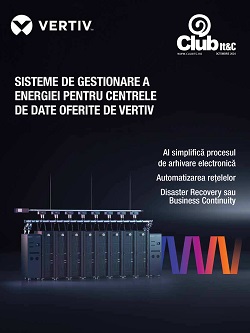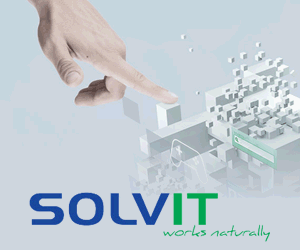Attending the London MSP Summit felt like taking a step into the future, both from a business perspective and also in terms of technology. It also gave me the opportunity to reflect deeply on both fronts and identify new opportunities. If you’re honest with yourself and set your ego aside, the results of this introspection can be tough to swallow. However, the information gained acts as a universal remedy—apply it consistently, and you have a strong chance of surpassing your initial condition and becoming a part of that future.

London’s Evolution: A City Bridging Tradition and Innovation
The culture of London society has been integrated into its organizational frameworks. London has transformed from a conservative monarchy into a society that is open to innovation and extroversion. It asks current, relevant questions and has the courage to fund the answers, even without immediate guarantees of results.
London positions itself as a bridge between Europe and the U.S., and the signs of its historical empire are visible everywhere. This city maintains balance by leveraging a high degree of technological advancement while maintaining a constant focus on privacy protection. Although not necessarily nostalgic, they have embraced their history, which gives them the freedom and confidence to look toward the future and build it.
Key Themes: AI, Cybersecurity, and the Ecosystem They Demand
The main topics discussed at the London MSP Summit centered around AI and cybersecurity. While one might think that everything has already been said about these topics, the discussions didn’t focus on the classic question of whether AI is a friend or foe. Instead, the emphasis was on creating the ecosystem in which AI will operate. Whether AI is perceived as good or bad depends on who builds that ecosystem, with responsibility ultimately lying in human hands.
The Approach of London Companies
Companies in London adopt various strategies to stay competitive in the managed IT services market:
1. Innovation and Technology Adoption: Many MSPs focus on leveraging emerging technologies like AI, machine learning, and automation to enhance service delivery and operational efficiency.
2. Customer-Centric Services: Successful MSPs emphasize understanding their clients’ needs and providing tailored solutions to deliver value and build long-term relationships.
3. Networking and Collaboration: Events like the Managed Services Summit create opportunities for networking, allowing companies to collaborate, share insights, and form partnerships that can enhance their service offerings.
4. Focus on Cybersecurity: Given the increasing threat landscape, many London-based MSPs prioritize comprehensive cybersecurity solutions to protect their clients from potential breaches.
Business Philosophy
The feeling of inferiority that I mentioned earlier ties back to how IT service providers understand the support they offer. They see it as an extension of the products they sell, whether specific applications or dedicated security solutions—not as something generic. For the companies at this event, the classic help desk no longer exists, as it is managed internally, while security and cloud computing solutions are outsourced. In the few cases where help desks still exist, they are fully automated, utilizing solutions like Atera, which successfully combines AI with cybersecurity.
Apart from IT companies, most other industries do not have robust internal IT departments, with essential activities being outsourced. This has become the norm, and IT services are delivered through monthly subscriptions (OPEX), with on-premise acquisitions (CAPEX) being the exception. This approach shows a high degree of education and maturity, as well as a medium-to-long-term strategy supported by legislation and a political environment that acts more as a partner than an obstacle.
Unfortunately, Romania is coexisting with the future, but this doesn’t have to be a disadvantage. If we learn to adapt rather than imitate, we can avoid the mistakes others have made. In both business and daily life, people seek openness, integration, and innovation—not certainties and preservation.
This paradox might be surprising for a monarchy, but not for one that places such a strong emphasis on education. Both the public and private sectors in London view technology budgets as investments, and this allows them to control and even reduce corruption. For example, public procurement initiatives like the G-Cloud framework have helped smaller businesses access government contracts more easily, reducing bureaucratic barriers and the opportunities for corruption.
Challenges Faced by Companies
Despite the vast opportunities, companies in London face several challenges within the managed IT services landscape:
1. Talent Shortage: There is a high demand for skilled IT professionals, creating intense competition among companies to attract and retain top talent.
2. Cybersecurity Threats: With the rise in cyberattacks, MSPs must continually adapt their services to ensure robust security measures are in place for their clients.
3. Regulatory Compliance: Navigating complex regulations, particularly around data protection and privacy, poses significant challenges for managed service providers.
4. Market Saturation: As more players enter the market, MSPs must differentiate themselves to stand out and attract clients.
The Role of AI in IT Services
AI isn’t new. CAPTCHA, the acronym for “Completely Automated Public Turing Test to Tell Computers and Humans Apart,” was invented in 1950 by Alan Turing. He imagined a scenario where a computer and a person were behind two different doors, which he called “The Imitation Game.” AI today raises important questions: Is it increasing wisdom or intelligence, or is it an extended hand to human intelligence? AI offers multiple benefits, including thinking faster, greater predictability, efficiency, accuracy, autonomy, real-time threat mitigation, trend recognition, and the ability to overcome the shortage of specialists in IT and cybersecurity.
During the discussions on AI, Lisa Wilson, a renowned expert in the field with an impressive resume, shared some intriguing insights:
SIRI, developed in 1997, currently operates at only 50% of the capacity for which it was originally designed.
This revelation serves as a reminder that, while technology advances rapidly, there is still much untapped potential. If managed correctly, AI has the capacity to fundamentally change the way we work and live. Wilson also mentioned that future advancements in AI will be shaped by government regulations and collaboration between the public and private sectors, emphasizing the need for a balanced approach.
Conclusion
The London MSP Summit 2024 was not just an opportunity to learn and gain motivation, but also a chance for introspection—to recognize how far we have come and how much further we have to go.
For businesses, this means more than simply staying updated with technology. It’s about forging a path that integrates innovation with real-world needs. London’s unique blend of tradition and forward-thinking offers inspiration, showing that with the right approach, businesses can break through challenges and thrive.
The future belongs to those who not only adapt but actively shape what’s next. MSPs and companies that commit to authenticity, innovation, and customer-focused solutions will not just survive – they will lead.
By Alexandru Trifu, Chief Sales Officer at LifeinCloud






























